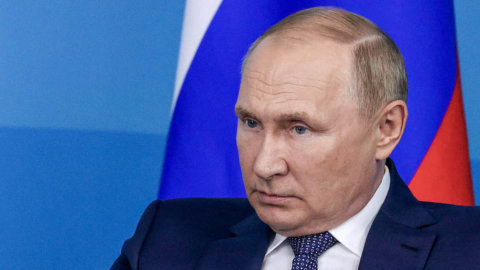After Tunisia and Egypt, this weekend was Libya's turn. About 66% of citizens entitled to vote went to the polls to elect the 200 members who will form the Constituent Assembly: these are the first free elections for 60 years, after 42 years of dictatorship under Rais Muahammar Gaddafi. The General National Congress will have to appoint a prime minister and a government within two months as well as present a draft of the new constitution.
According to the first ballots, the party in the lead is the Alliance of National Forces (Afn), a union of over 60 parties headed by Mahmoud Jibril, the prime minister who, since the fall of the Rais, leads the National Transitional Council (Cnt ). “There were no winners or losers in Saturday's election. Libya is the only winner,” Prime Minister Jibril said during a press conference during the night. jibril is supported by Western countries despite calling himself neither liberal nor secular and ardently claiming that among its principles there are also those of Islamic law. However, he is decidedly more moderate than his opponents, the more radical Muslim Brotherhood. But thanks to the support that he could receive from the more openly Islamic parties, this morning Jibril launched an appeal to the approximately 150 parties that currently make up the political geography of the North African country to support a grand coalition government. For the moment however, religiously oriented parties have not responded to Jibril's appeal pending the results of the vote which will be known by this evening.
Since Gaddafi's death on 20 October, the National Transitional Council has had various difficulties in maintaining security and addressing requests for regional autonomy, especially from Cyrenaica, the most controversial area because it is the poorest in the country but the richest of oil. The new government therefore faces several challenges:
Power of the military – Many ex-rebels, who helped bring down Gaddafi, are now using arms for political gain. The disarmament of the population and the integration of these forces into a civilian context will be one of the first tasks of the new government.
Requests for autonomy – Since the fall of Gaddafi, ethnic groups and tribal factions have paralyzed Libya by demanding more powers and, in some cases, even secession from the country. The government will have to find ways to compensate for these demands. According to the latest polls, there are 61 Cyrenaic representatives compared to 101 from Tripolitania and it remains to be seen whether this will not unleash tensions in the new Parliament.
Safety – The government will have to commit to establishing and enforcing a rule of law capable of building a legal system that guarantees the normal course of the economy and the resolution of disputes (including at an economic level)
Economy – An important point for Italy which is one of the country's major trading partners, the new government will have to do getting the Libyan economy back on track. Libya, as the fifth largest oil producer in the world, could easily attract huge foreign capital flows.
For more information, read the article on yalibnan and watch the Al Jazeera video





